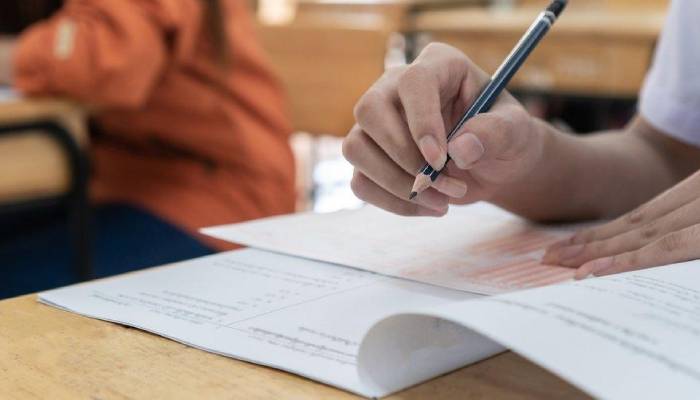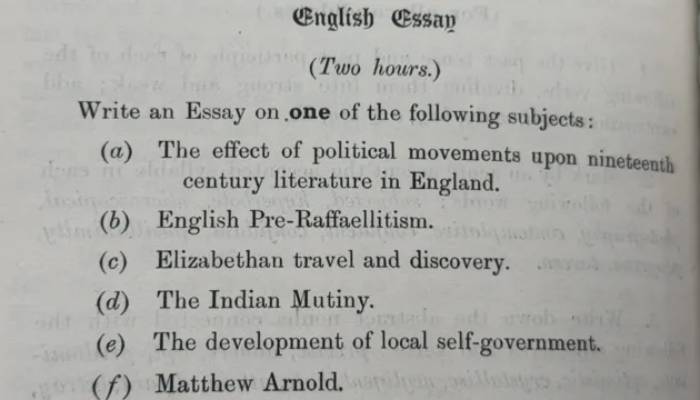
Cambridge University Press and Assessment (CUP&A), one of the UK's biggest exam providers, has been setting papers since the 1850s!
But do you know about its evolution and history and how it got started?
Over 100 million people worldwide have taken its English exams but modern exams are much different from the very first exam of CUP&A.
As per BBC, in 1913, three teachers attempted the first Cambridge English exam, but all of them failed.
The question will be given to you at the end to see if you can solve it in today’s modern era.
At that time, the exam consisted of multiple papers focused on topics such as phonetics, grammar and translation. It was a long exam, taking 12 hours to complete in total.
Galaczi, director of research at CUP&A said, "At first, it was an exam for a small elite who wanted to study English as an academic subject, like Latin or Ancient Greek.”
In the past, grammar and translation were seen as the most essential aspects of learning English.

However, over time, the focus of the exam has shifted to prioritizing the ability to use English for communication.
"The shift was gradual, but in the Second World War English became a global language and so speaking and pronunciation became much more important,” Dr Evelina added.
By the 1950s, people had started asking for the English exam to include translation questions in many different languages.
These languages included a wide range, from Arabic to Vietnamese.
Gillian Cooke, group archivist at CUP&A, said in a statement, noting, " I think the take up for each language was quite small and so that probably wasn't cost effective. It might be one of the reasons why the translation paper was dropped in the 1970s."
These exams are recognized by over 25,000 organizations including governments which use them for immigration, employers and universities.
The exam has been continuously updated and improved over time.
Today, Cambridge Exams can be taken digitally and artificial intelligence (AI) is being used to design adaptive tests.
What was the question we were talking about?
Correct or justify four of the following sentences, giving your reasons:
(a) I hope you are determined to seriously improve.
(b) Comparing Shakespeare with Aeschylus, the former is by no means inferior to the latter.
(c) I admit that I was willing to have made peace with you.
(d) The statement was incorrect, as any one familiar with the spot, and who was acquainted with the facts, will admit.
(e) It has the largest circulation of any paper in England.
(f) The lyrical gifts of Shakespeare are woven into the actual language of the characters.
Answers as per BBC:
(a) This is a split infinitive which would have been considered wrong. It should have said "to improve seriously"
(b) This is a hanging participle. It should have read "Shakespeare is by no means inferior to Aeschylus". Now we would say "Shakespeare is just as good as".
(c) Wrong tense. It should be "to make peace".
(d) "Would admit" not "Will admit".
(e) Correct
(f) Correct















